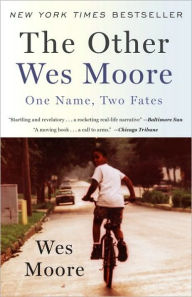Do you have a high school senior who plans on heading out to college

But wait! Do you or your kids know what it takes to “get ready” for college?
this fall? Or a college freshman who’s already there? If so, you might expect to encounter a “recommended summer reading list” for incoming freshmen. Lately some colleges have gone one step further with common reading programs, in which all first-year students are asked to read the same book over the summer and be prepared to discuss it during orientation or a required first-semester class.
Turning an entire class into a summer book club is supposed to foster a sense of community, create instant discussion points, and build rapport between students and teachers. That’s the theory, anyway. Several colleges who began common reading programs have already dropped them, but others have signed up, so there must be a certain appeal. . The National Association of Scholars, which has long tracked college recommended reading lists in their every-other-year “Beach Reads Report,” surveys the field and determines the apparent criteria for book selection.
It’s no surprise that the chosen books for an all-class read lean left, but the NAS reports that they’re not even especially distinguished. The goal in assigning them is not to introduce challenging academic works, but—well, the NAS quotes Webster University (St. Louis) selection committee as a sterling example of what they’re all about, namely
“. . . raising awareness and encouraging discussion that will enhance our students’ critical thinking skills and intercultural competence, helping us all to be more engaged global citizens. By exploring those readings, we hope to promote a society in which citizens challenge injustice and value diversity and inclusion.”
If I were wearing my cynic’s hat, I would offer my interpretation of certain well-used terms, like “critical thinking skills” (as long as we’re criticizing America!), “engaged global citizens” (ditto), “promote a society” (in which we all think alike), “challenge injustice” (against everybody except Christians and Republicans), “diversity” (for me), and “inclusion” (but not for thee). Cynicism aside, and speaking as objectively as possible, the NAS notes that academic excellence was not a criteria for book selection.
 Small wonder, when a significant portion of the today’s freshman class have never read an entire adult book they didn’t have to. For these book-shy teens, selection committees look for a strong narrative hook, like The Other Wes Moore, about two African American boys with the same name and home town, one of whom ends up writing a book while the other ends up in jail. Or Spare Parts, a David-and-Goliath story in which four “undocumented,” Mexican-born teenagers build an ugly robot and win a prestigious technology competition at UC-Santa Barbara.
Small wonder, when a significant portion of the today’s freshman class have never read an entire adult book they didn’t have to. For these book-shy teens, selection committees look for a strong narrative hook, like The Other Wes Moore, about two African American boys with the same name and home town, one of whom ends up writing a book while the other ends up in jail. Or Spare Parts, a David-and-Goliath story in which four “undocumented,” Mexican-born teenagers build an ugly robot and win a prestigious technology competition at UC-Santa Barbara.
These books may be engaging, sobering, or uplifting but they are not challenging, and the kind of discussion they’re likely to provoke is exactly the kind the university approves. Racism and amnesty are the current trendy topics, diversity and sustainability are perennial favorites, and almost none of the books are older than the students who are expected to read them.
The 2016-17 NAS Beach Reads Report (link to full .pfd) concludes with a sympathetic statement:
Common reading programs offer mediocre books partly because of their subordination to progressive ideologues in the “co-curricular” bureaucracy. Yet they are also a sincere response to an unfortunate situation: colleges and universities now admit a large number of students who are not prepared to read a college-level book. The personnel of common reading programs are in an unhappy position: they cannot assign a sophisticated book and expect that the entire class of incoming freshmen will be capable of reading it. They are charged with an impossible task and they must make some compromise to square the circle.
We do not approve of the too-frequent decision to compromise on the intellectual quality of the books they choose as common readings, but we are sympathetic to well-meaning people forced to choose between second-best alternatives. Colleges and universities as a whole must also change their policies so as to make common readings useful components of the education they offer. We make only one recommendation: Tighten college admission standards so as to select a student body with the capacity and desire to read a challenging book. Common reading programs cannot expect to succeed without this essential support from their institutions as a whole.

The NAS identifies this as “The greatest English realistic novel.” Have you read it?
Two questions for parents of high school students: 1) Are you or your teens expecting them to
earn a degree at a traditional liberal-arts college? And 2) Are your prospective students willing and able to make good use to their time in the academic world, or should they consider a community college, a gap year, or a trade-school alternative?
The NAS has compiled its own list of 115 recommended reads that cover a broad swathe of genres and literary styles, offer true diversity of thought, and challenge the reader (some much more than others). The list is at the end of the 192-page Beach Reads report linked earlier, or available as a separate list here. Reading every one of these might constitute a liberal-arts education in itself—how many have you encountered?
Support our writers and help keep Redeemed Reader ad-free by joining the Redeemed Reader Fellowship.
Stay Up to Date!
Get the information you need to make wise choices about books for your children and teens.
Our weekly newsletter includes our latest reviews, related links from around the web, a featured book list, book trivia, and more. We never sell your information. You may unsubscribe at any time.
We'd love to hear from you!
Our comments are now limited to our members (both Silver and Golden Key). Members, you just need to log in with your normal log-in credentials!
Not a member yet? You can join the Silver Key ($2.99/month) for a free 2-week trial. Cancel at any time. Find out more about membership here.

